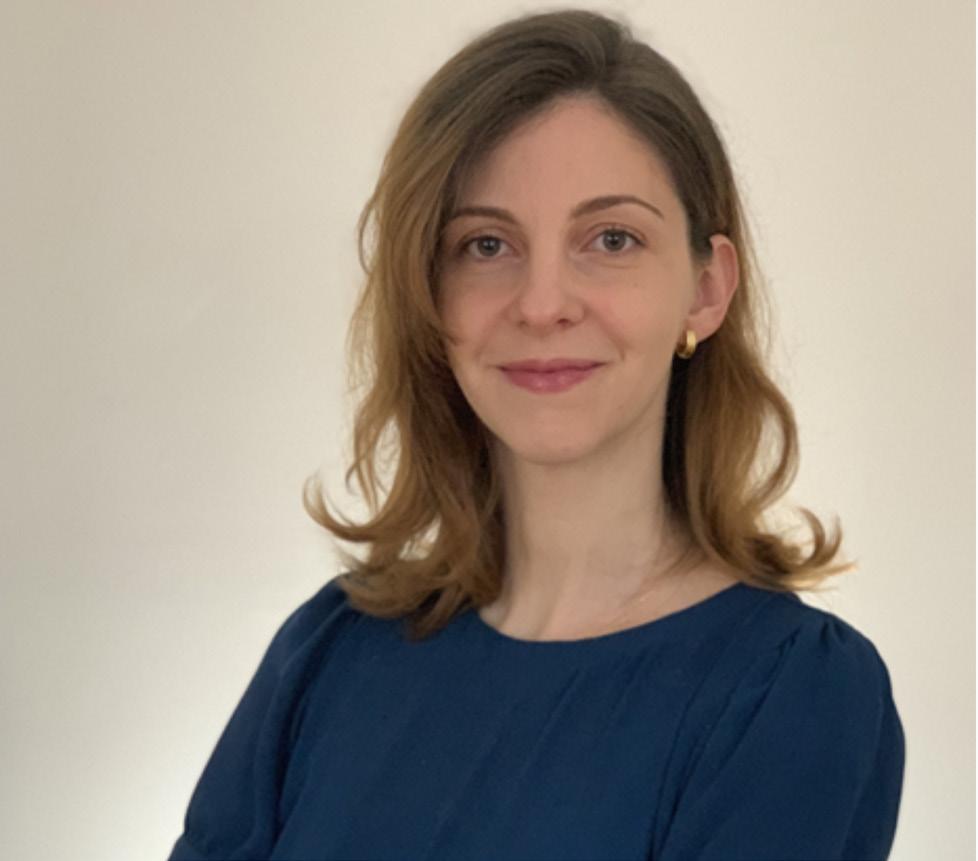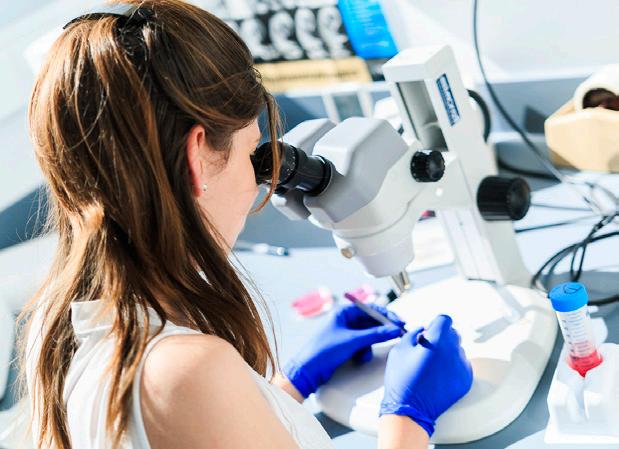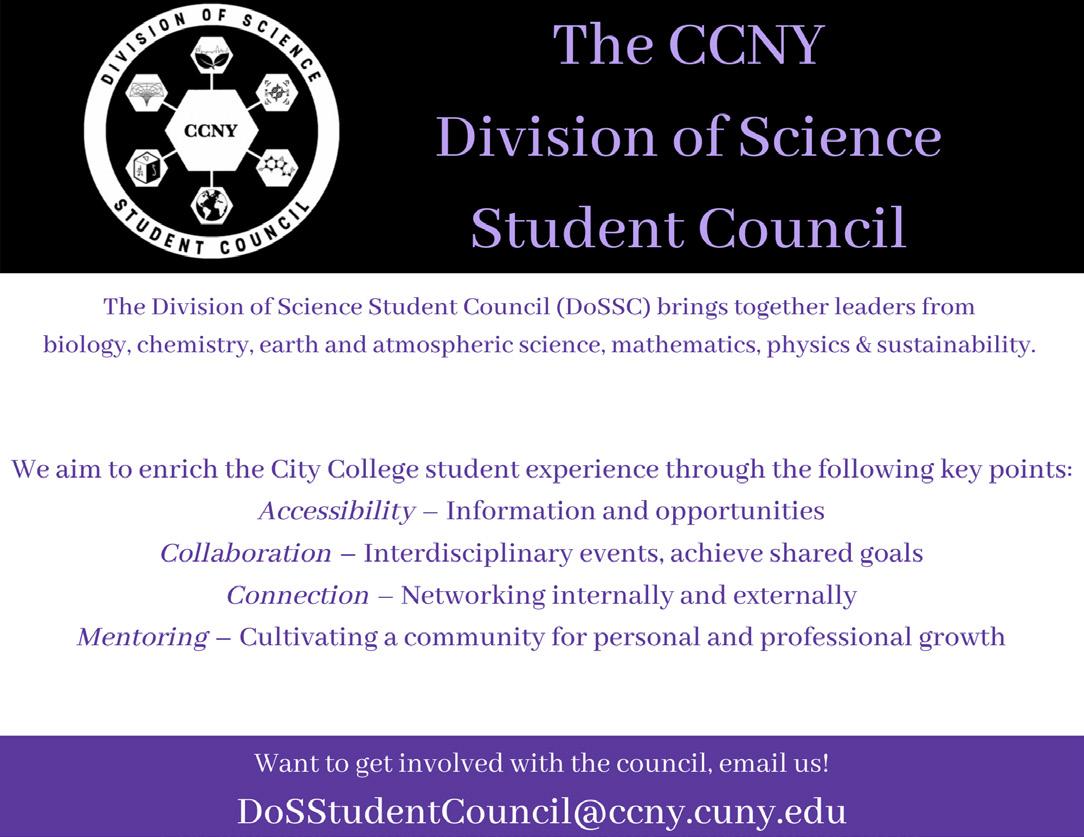
2 minute read
Inspiring Scientists
Inspiring SCIENTIST Dr. Miruna Ghinia-Tegla
Dr. Ghinia-Tegla works as a Postdoctoral Research Associate alongside Dr. Emerson in the CCNY Biology Department, and this past year marks her seventh anniversary. Her research focuses on the retina of the eye, mainly on the molecular signals that regulate how different types of cells in the eye are appropriately generated and connected to other cells. Looking closely at the biology of the retina, she uses a series of molecular biological, immunolabeling and microscopy techniques in her bench research. Some of her work strategies include CRISPR/Cas9 gene editing, in studying retinal samples from different species such as chicken, with visual function similar to humans.
Advertisement
Before coming to CCNY, Dr. Ghinia-Tegla had experience at other institutions, such as the National Eye Institute of the National Institutes of Health in Bethesda, MD and Institue of Neuroscience of the National Research Council in Italy, while studying for her doctorate, which she received from “Babes-Bolyai” University in Cluj-Napoca, Romania (her home country) in 2014. When coming to New York City, she took a chance and searched online for research opportunities matching her interests, and she found a position in Dr. Emerson’s lab. After conducting her interview in late 2014, she soon joined the lab and is now the team’s most Senior Research Associate. During her time at CCNY, Miruna has taken on other titles as well, from mentor to being a part of the CCNY Women in Science Board as Vice President and Director of Outreach and starting the CUNY Postdoc organization, connecting members of our community.
The job of a scientist is never science alone. Miruna mentors young colleagues in the lab and it is this part of her position that she loves the most. She gets to share her enthusiasm about science and help students understand new techniques that they otherwise would not pick up just from studying. Many students “spend time reading books and try to understand all the processes and everything, but once you watch in the lab, things change.” Witnessing her peers alter their learning perspectives and develop technical skills is the most exciting part of her workday. She admits that what has helped her reach this level of success and enjoyment is a good work ethic and preserving social relationships. The work is not easy but keeping a steady sense of self-discipline has helped her exceed her work expectations and create trusting friendships with her colleagues. For students going into the fields of science and lab work, Dr. GhiniaTegla encourages them to talk to people and not be intimidated. It is easy to be put off by long titles and prizes that many professors have, “but at the end of the day, they were just like you and had to start somewhere.” Interacting and attending events is important to establish work connections and for Miruna, it is also important to build these connections for the sake of the future of the sciences and the mental health of those that study it.








